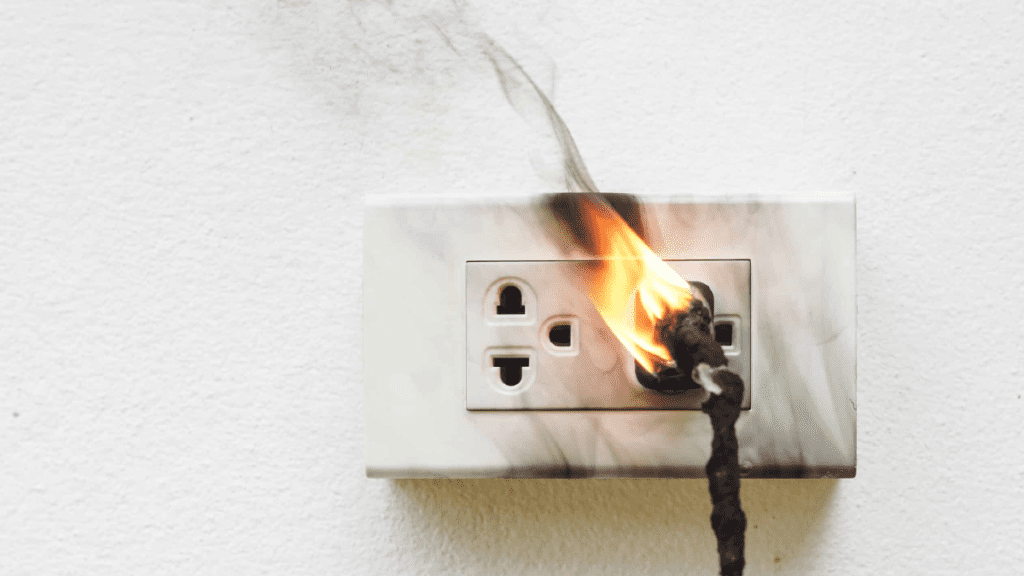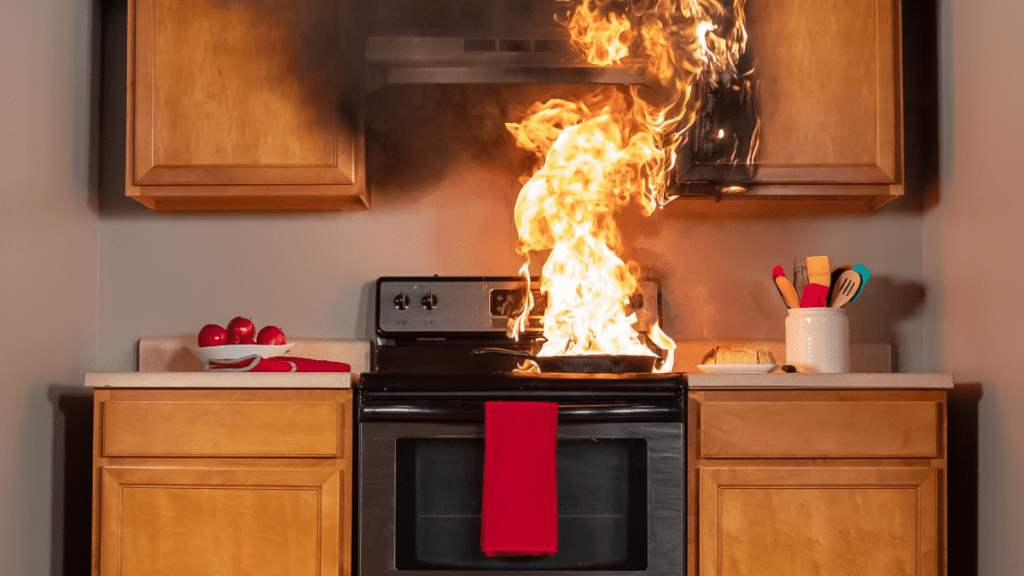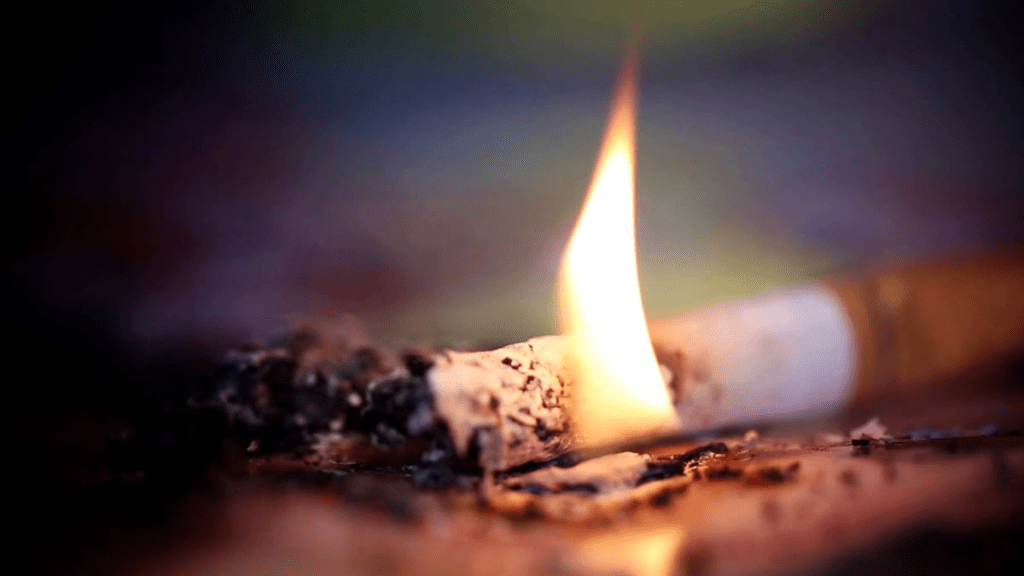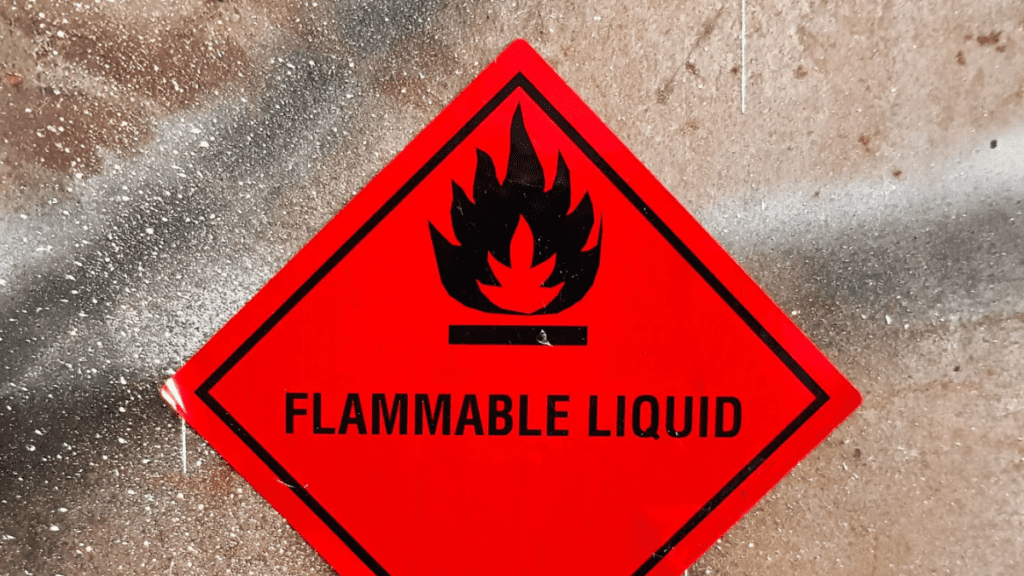One of the biggest risks to people’s lives, property, and the environment is fire. They can happen suddenly, spread quickly, and result in significant loss and harm. Homes, workplaces, factories, forests, and many other environments are susceptible to fire. To ensure fire safety and reduce damage, it is essential to understand these risks and put fire prevention measures into action.
1. Electrical Fires

One of the most frequent causes of fires in homes and commercial buildings is electrical fires. Usually, malfunctioning electrical equipment, overloaded circuits, or bad wiring are the causes of these fires.
Causes:
Overloaded circuits: A circuit may overheat and catch fire if too many gadgets are connected to a single outlet or power strip.
Bad wiring: One of the main causes of electrical fires is outdated or broken wiring, particularly in older structures. Over time, insulation can deteriorate, exposing wires that could burn adjacent materials.
Appliance malfunctions: Poorly maintained or defective appliances with damaged wiring, like dryers, toasters, and refrigerators, can potentially cause fires.
Prevention:
Regular inspection: To make sure your home or place of business’s electrical system is up to code and operating correctly, have a licensed electrician check it on a regular basis.
Don’t overload outlets: Overheating may result from plugging too many gadgets into a single socket. If you must plug in more than one item, use a surge protector, but make sure you don’t use more than the recommended amount of power per outlet.
Appliance maintenance: Verify that every electrical appliance is in proper operating condition. As soon as you see frayed cables or broken equipment, have it fixed or replaced.
Set up smoke detectors: A smoke alarm can notify you of a fire before it gets out of control. Replace the batteries at least once a year and test them every month.
2. Cooking Fires

The most common cause of home fires is cooking. When cooking, a lot of individuals leave the kitchen unattended or become sidetracked by other tasks.
Causes:
Cooking without supervision: Pots and pans left on a hot burner can quickly catch fire. Additionally, spills of oil or grease have the potential to ignite, particularly if they come into contact with an open flame.
Items that can catch fire: Paper, towels, and other combustible items close to the stove can quickly catch fire if they come into contact with flames or hot surfaces.
Equipment malfunctions: A fire may be started by a broken stove or oven, particularly if it is not serviced on a regular basis.
Prevention:
Never let food cook unattended; stay in the kitchen. Turn off the oven or stove until you get back if you must leave the kitchen.
Avoid placing combustible objects near heat sources: Paper towels, napkins, and towels should be kept away from the oven or stove. A fire extinguisher should be kept close by in case of a grease fire.
Put a fire extinguisher to use. Learn how to use and keep a kitchen-rated fire extinguisher in your kitchen. Water can spread a grease fire, so avoid using it in the event of one. Use a fire extinguisher or a metal lid to cover the pan instead.
Clean up grease: Grease accumulation in range hoods, ovens, and stovetops can be extremely flammable. Regularly clean surfaces to prevent grease fires.
3. Heating Equipment Fires

If not properly maintained, heating appliances such as central heating systems, chimneys, and space heaters can pose significant fire hazards.
Causes:
Misuse of space heaters: A lot of people position space heaters too near bedding, drapes, or furniture. The heater may overheat as a result, setting adjacent materials on fire.
Unclean chimneys: If not cleaned on a regular basis, creosote, a combustible material that accumulates inside chimneys, can catch fire and start a chimney fire.
Older heating systems: Older or defective heating systems are more likely to break down and overheat, which can result in fires.
Prevention:
Keep combustibles away from space heaters: Keep three feet between space heaters and combustibles such as bedding, paper, and furniture.
Regular cleaning of the chimney: To get rid of any accumulated creosote, get your chimney examined and cleaned by a professional at least once a year. Chimney fires will be less likely as a result.
Make safe use of space heaters: A space heater should never be left running alone, and it should always be turned off before leaving a room or going to bed.
Check the heating systems: To make sure your heating system is operating effectively and safely, get it inspected and maintained on a regular basis.
4. Smoking Fires

Numerous fires in homes and businesses are caused by cigarettes, cigars, and other smoking products. Fires can be easily started by improperly disposing of smoking items, particularly if they come into contact with combustible materials.
Causes:
Cigarettes thrown away: In locations with dry grass, leaves, or other combustible materials, unextinguished cigarette butts may smolder for hours before catching fire.
Smoking in bed: Smokers who smoke in bed may nod off, leaving a cigarette burning that could set off furniture, clothes, or bedding.
Careless disposal: Smokers frequently fail to fully extinguish cigarette butts before discarding them in garbage cans or on the ground, which can result in fires.
Prevention:
Proper disposal: To guarantee that cigarette butts are completely extinguished, always dispose of them in a metal container filled with water or sand.
Never smoke in bed: It’s risky to smoke in bed, especially when you’re tired. If smoking is necessary, go outside or to a designated smoking place.
Use fireproof ashtrays: When disposing of cigarettes, always use a strong, fireproof ashtray. Cigarettes should never be left unattended.
5. Flammable Liquids

Many houses and businesses include flammable liquids such as paint thinner, gasoline, and cleaning supplies. These materials are extremely flammable and, if not handled correctly, can quickly catch fire.
Causes:
Improper storage: Fires can result from keeping flammable liquids next to open flames or in places with heat sources.
Spills: If flammable substances spill during transportation and come into contact with a heat source or spark, it could start a fire.
Inadequate ventilation: There is a greater chance that fumes will build up and catch fire when combustible liquids are stored in spaces with inadequate ventilation.
Prevention:
Properly store flammable liquids: Keep flammable liquids away from heat sources and in sealed containers at all times. Make use of the proper storage cabinets made for these kinds of materials.
Spills should be cleaned up right away using absorbent materials, and any flammable liquid should be disposed of by safety regulations.
Ventilate areas: To avoid fume buildup, make sure that spaces used to store flammable chemicals have enough ventilation.
6. Arson

Arson is the deliberate, often malicious, starting of a fire. It can happen in both private and public places, and occasionally it is carried out by people who have no other obvious goal but to hurt or destroy.
Causes:
Personal grudges: Some arsonists burn things to exact revenge on individuals or organizations that they find offensive.
Insurance fraud: In order to obtain insurance claims, some people or companies purposefully start fires.
Vandalism: Some people intentionally start fires in an effort to cause mayhem or destroy property.
Prevention:
Put security systems in place: By warning authorities of any suspicious behavior, a well-maintained security system with cameras and alarms can help prevent arson.
Maintain the property’s security: When not in use, make sure all windows and doors are shut, and take out anything that could ignite a fire, including gasoline or other accelerants.
Participation in the community: Participate in your community to keep an eye on and report any questionable activity. Programs for neighborhood watch can aid in discouraging criminal activity, such as arson.
Final Word
Although there is a risk of fire in many areas of daily life, many of these risks can be reduced or even eliminated with awareness and preparation. Protecting yourself, your loved ones, and your property from the destructive impacts of fire requires knowing the common causes of fires and taking preventative action.
You may lessen the chance of fire outbreaks by practicing safe maintenance, being aware of the fire dangers in your area, and maintaining your home regularly. Installing smoke alarms, utilizing fire extinguishers, storing combustible products appropriately, and maintaining heating and electrical systems are all proactive measures to reduce the chance of a fire. Everyone can live and work in a safer environment if you are knowledgeable and take a few easy steps.


